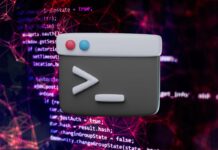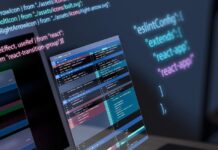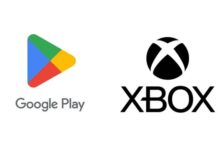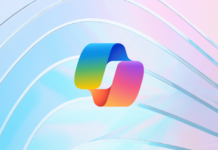Understanding Laravel Framework and PHP Requirements: A Comprehensive Guide
Laravel has established itself as one of the most widely used open-source PHP frameworks, enjoying immense popularity due to its robust community, scalability, and user-friendly approach. However, to truly harness the power of Laravel, developers must have a clear understanding of the PHP requirements associated with it and how these can affect Laravel upgrades.
In this detailed guide, we will introduce you to the Laravel framework and explore its relationship with PHP. We’ll discuss the importance of using the latest versions of both Laravel and PHP, provide insights into upgrading Laravel, and outline the PHP requirements for various Laravel versions. Moreover, we will recommend PHP support options for teams contemplating a Laravel upgrade.
Laravel Framework: An Overview
Launched in 2011, Laravel is an open-source framework that serves as both a full-stack framework and an ecosystem offering features for developing, testing, profiling, and deploying web applications. Before delving into the PHP requirements for Laravel, it is crucial to grasp a basic understanding of what Laravel entails.
What Is Laravel?
Laravel is a web application framework known for its expressive and elegant syntax. It stands as the most popular PHP framework among developers, primarily because it simplifies common web development tasks. These tasks include Model-View-Controller (MVC) architecture, authentication, authorization, routing, sessions, caching, queuing, and more. The extensive community support and tutorials further enhance its reputation as the best-documented framework for building PHP applications.
Features That Make Laravel Stand Out
Laravel’s success can be attributed to its impressive array of features, such as:
- MVC Architecture: Provides a clear separation of concerns, making code maintenance easier.
- Package System: Allows the installation of "bundles" or packages for additional features.
- Robust Routing System: Offers flexible and easy-to-use routing mechanisms.
- Eloquent ORM: Facilitates database interactions using simple and clear syntax.
- RESTful APIs: Supports building RESTful APIs seamlessly.
- Artisan: A command-line tool for tasks like database migrations, running tests, and creating custom commands.
- Blade Template System: Offers features like template inheritance and sections for reusable code.
- Built-in Authentication: Manages user logins and roles efficiently.
- Scheduler: Automates routine tasks such as sending emails or cleaning up databases.
- Pre-packaged Dev Environment: Includes environments like Homestead for Laravel projects.
Differentiating Laravel from PHP
While Laravel and PHP are related, they are not the same. PHP, which stands for Personal Home Page or Hypertext Preprocessor, is a scripting language used for building dynamic web pages. Laravel, on the other hand, is a framework built on top of PHP, designed to simplify web development tasks using modern syntax without sacrificing functionality or efficiency.
Why Laravel Upgrades Are Crucial
In the PHP ecosystem, especially with applications built on Laravel, staying current with the latest technologies and versions is vital. Ignoring upgrades can expose your business to security vulnerabilities, restrict maintenance options, and hinder future scalability.
Several factors influence PHP frameworks like Laravel:
- PHP End of Life (EOL) Cycle: Determines the support lifecycle for PHP versions.
- Vulnerabilities and Security Patches: Address potential security issues.
- Framework Improvements: Incorporate new features and optimizations.
- Integration with External Software: Ensures compatibility with other tools.
These factors are tightly linked to Laravel’s version release cycle, which aims to enhance the framework with each new version. Changes in a Laravel release may include:
- Performance Optimization: Leveraging new PHP features for improved performance.
- Syntax Improvements: Adopting best practices from recent PHP versions.
- Bug and Security Fixes: Addressing issues in the framework code.
- Integration Enhancements: Improving compatibility with other frameworks or libraries.
Keeping Up with PHP Versions
Laravel upgrades ensure you can access the latest features and security improvements inherent in the most recent PHP version. Each PHP version follows a community support lifecycle, with active and security support phases. Once a version reaches the end of the security support phase, it is no longer maintained, leaving vulnerabilities unpatched.
To remain competitive, many Laravel projects need to migrate to PHP versions that are still supported. For example, older Laravel versions might not support PHP 7.4 and beyond, necessitating an upgrade.
Simplifying PHP Migration
Migrating PHP versions can be challenging. Companies like Zend offer migration services to streamline the process, even for frameworks like Laravel and Laminas.
Benefits of Upgrading Laravel
- New Features: Enjoy improved performance, security features, and integrations.
- Security and Bug Fixes: Protect applications by addressing vulnerabilities.
- Enhanced Performance: Benefit from optimizations developed by the Laravel community.
- Compatibility and Support: Ensure compatibility with modern tools and libraries.
Preparing for a Laravel Upgrade
Before initiating a Laravel upgrade, it is essential to understand the framework’s release cycle. Laravel and its packages follow Semantic Versioning, with major releases occurring annually and minor updates happening more frequently. Bug fixes are provided for 18 months, while security fixes are available for two years.
Laravel Versions and Supported PHP Versions
- Laravel 6 (LTS): PHP 7.2 – 8.0
- Laravel 7: PHP 7.2 – 8.0
- Laravel 8: PHP 7.3 – 8.1
- Laravel 9: PHP 8.0 – 8.2
- Laravel 10: PHP 8.1 – 8.3
- Laravel 11: PHP 8.2 – 8.3
- Laravel 12: PHP 8.2 – 8.3
Methods for Upgrading Laravel
There are two primary methods for upgrading a Laravel PHP application: manually or using automation tools like Laravel Shift.
Manual Approach
This involves identifying and resolving compatibility issues, adjusting deprecated code, and updating dependencies step by step. Laravel provides comprehensive guides for this process, classifying changes as high, medium, or low impact.
Automated Approach
Using tools like Laravel Shift, you can automate the detection and correction of deprecated or incompatible code, making the upgrade process quicker and less error-prone. However, these tools may come with a cost.
Laravel PHP Version Requirements
Understanding the PHP requirements is crucial for a successful Laravel upgrade. Laravel requires PHP 8 or newer, along with additional resources and software:
- Web Server: Apache, nginx, or Caddy.
- Database Management: MySQL, PostgreSQL, SQLite, or SQL Server.
- Composer: To manage Laravel dependencies.
- PHP Extensions: Such as OpenSSL, Mbstring, Tokenizer, JSON, Ctype, and Pdo.
Laravel 9 and 10 PHP Requirements
- Laravel 9: Requires PHP 8 and Symfony’s latest version, relying on community-driven libraries.
- Laravel 10: Dropped support for PHP 8.0, requiring PHP 8.1 or higher, along with Composer 2.2+.
Laravel 11 PHP Requirements
- Laravel 11: Requires PHP 8.2 or higher and Composer 2.X. Ensure that PHP extensions meet specific requirements.
Maintaining PHP Support During Laravel Upgrades
Keeping your PHP applications current is essential, but upgrades can be time-consuming and costly. To extend the lifecycle of your Laravel application, consider options like Zend’s PHP Long Term Support (LTS), ZendPHP, and ZendHQ.
Zend PHP LTS
Provides long-term support for EOL PHP versions, allowing you to upgrade Laravel applications on your schedule. This is especially beneficial for complex applications with many dependencies or custom integrations.
ZendPHP Secure Runtimes
If your application is well-maintained and secure, ZendPHP offers secure runtimes with backported security patches and 24/7/365 support.
ZendHQ
An extension for ZendPHP, ZendHQ enhances application security, performance, and scalability. It includes features like Z-Ray for profiling, monitoring for preemptive issue detection, and code tracing for identifying issues in production.
Final Thoughts
Staying up-to-date with Laravel and PHP versions is critical for maintaining application security, performance, and compatibility. Despite the challenges, keeping your Laravel PHP applications upgraded is essential for business success. Zend offers trusted solutions to support your Laravel applications during upgrades and beyond.
Explore PHP Support Options
Zend provides options to maintain and upgrade Laravel PHP applications. Discover how ZendPHP and ZendHQ can fit into your infrastructure.
For more information, visit the Zend website.
By following these guidelines and understanding the requirements and benefits of upgrading Laravel and PHP, developers can ensure their applications remain secure, efficient, and competitive in the ever-evolving tech landscape.
For more Information, Refer to this article.



































